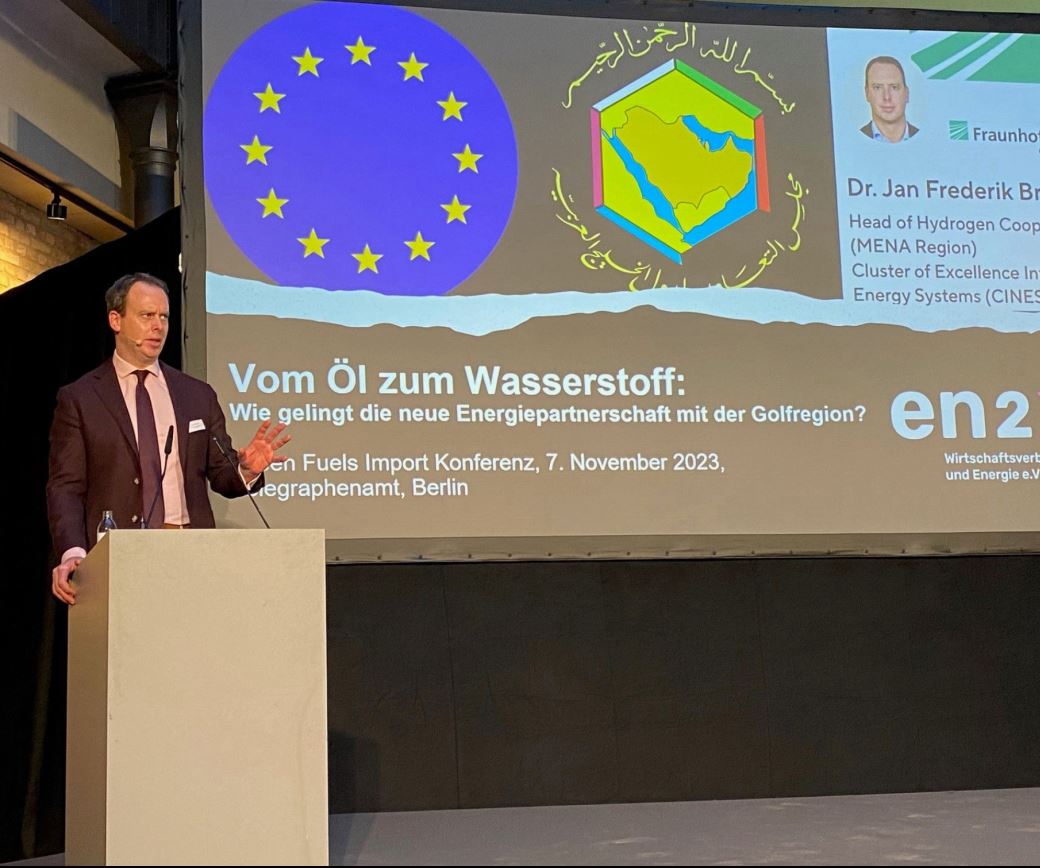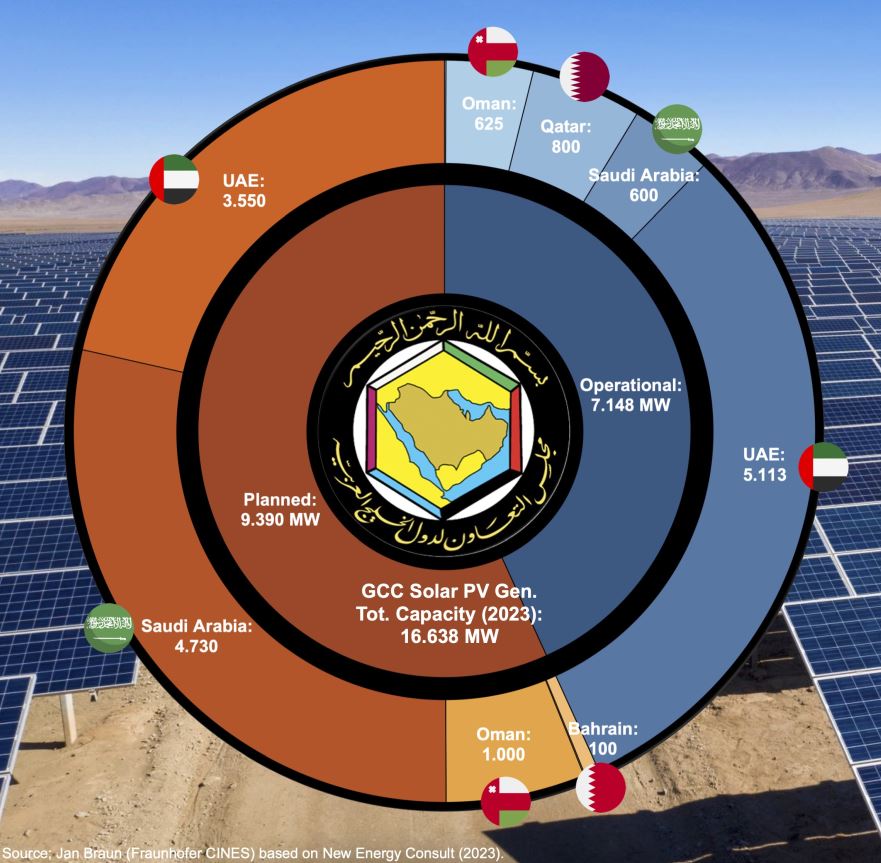Dr Jan Frederik Braun at the en2x Green Fuels Import Conference in Berlin


Dr. Jan Frederik Braun, Head of Hydrogen Cooperation (MENA Region) at Fraunhofer CINES, gave a presentation on »From oil to hydrogen: How can the new energy partnership with the Gulf region succeed?« at the Green Fuels Import Conference organised by en2x Wirtschaftsverband Fuels und Energie e. V. in Berlin on 7 November. The presentation provides an insight into the often differing expectations and approaches between Europe and the Gulf region in the development of a common hydrogen economy and how these views can be interlinked.
Against the background that the EU is seeking to diversify its energy supply with REPowerEU in order to end its dependence on fossil fuels from Russia, the EU is endeavouring to work more closely with the Gulf states. The Gulf states have the resources to produce renewable energies and low-carbon hydrogen and its derivatives. Given the current geopolitical and climatic situation, there is now an additional incentive to position themselves as reliable suppliers of clean energy imports to Europe.
Dr. Braun gave a comparison of the hydrogen pathways in Europe and GCC (Gulf Cooperation Council) after an introduction to the conceptual clarity of the hydrogen economy. The EU is focussing on the green hydrogen economy and the elimination of CO2 emissions in the medium to long term. In contrast, the Gulf region is focussing on clean and low-carbon hydrogen. Dr Braun used examples from Saudi Arabia, the United Arab Emirates and Oman to explain the key drivers and competitive positioning of the GCC. However, the Gulf region faces numerous challenges in developing the hydrogen economy, including a lack of strategy and institutional design, insufficient infrastructure, low local demand for clean hydrogen and a lack of certification and standards. A significant amount of renewable energy is needed to free the Gulf States from fossil fuel dependency and create the opportunity to export green hydrogen. However, there is a risk that the massive amount of renewable energy needed to export green hydrogen could interfere with the primary need to decarbonise the local industry and power sector.
In order to further promote cooperation and a balanced hydrogen partnership between the EU and GCC, it is important to understand the different expectations and approaches and to define common goals. In this context, Dr. Braun suggested that Europe should change its definition of hydrogen based on its emission intensity. In addition, there should be a harmonised certification system that defines a life cycle analysis and takes into account emissions from the upstream chain and transport. The EU should offer expertise and support from the Important Projects of Common European Interest (IPCEI) approach on how Saudi Arabia and other Gulf countries can benefit from implementing projects under this approach. IPECIs are strategic funding projects for the implementation of the EU's industrial strategy. The IPECI approach could serve as a tool for the Gulf states to establish regional centres for carbon capture, utilisation and storage (CCUS) and hydrogen hubs. The EU should also consider linking dedicated hydrogen pipeline projects with the European hydrogen backbone concept. Finally, innovation and research-based co-operation with the Gulf States should be established along the hydrogen value chain of production, storage, distribution and processing.
You can find more information about the conference here.
 Cluster of Excellence Integrated Energy Systems
Cluster of Excellence Integrated Energy Systems